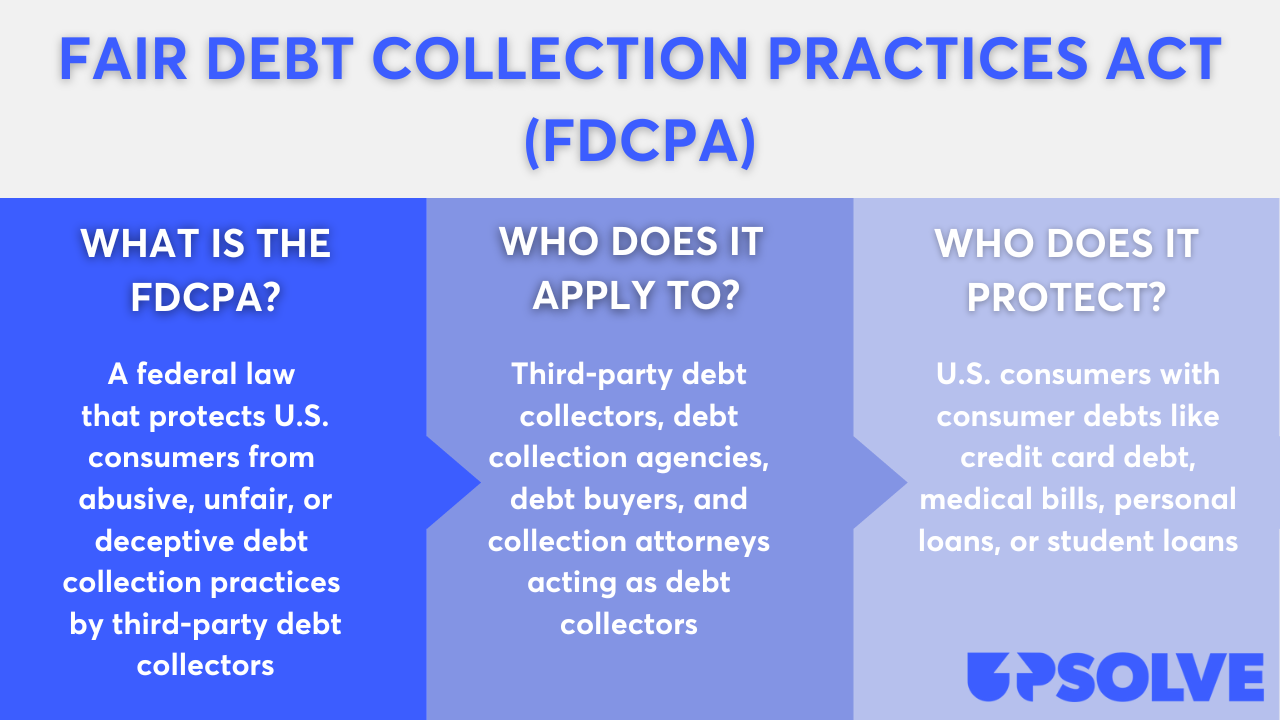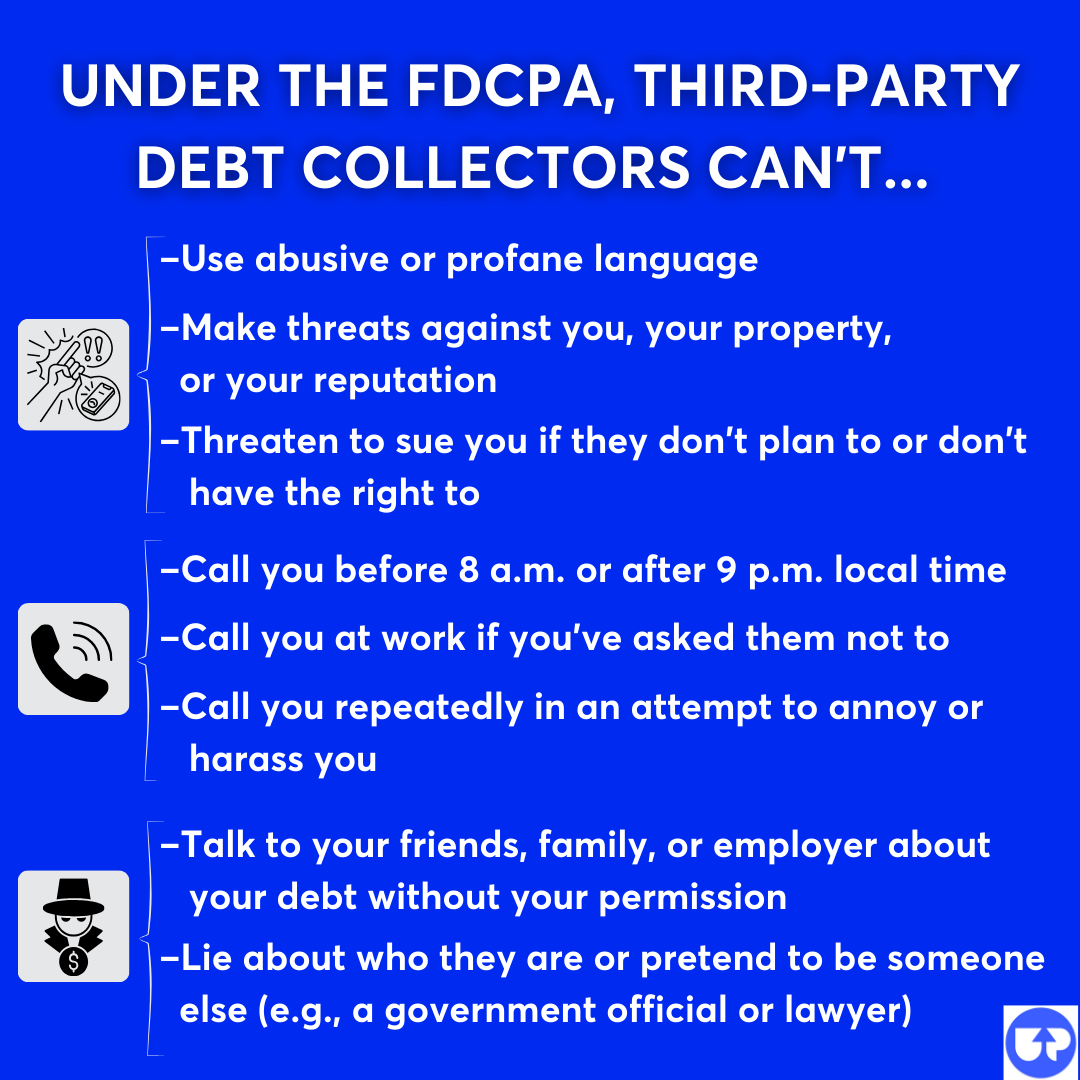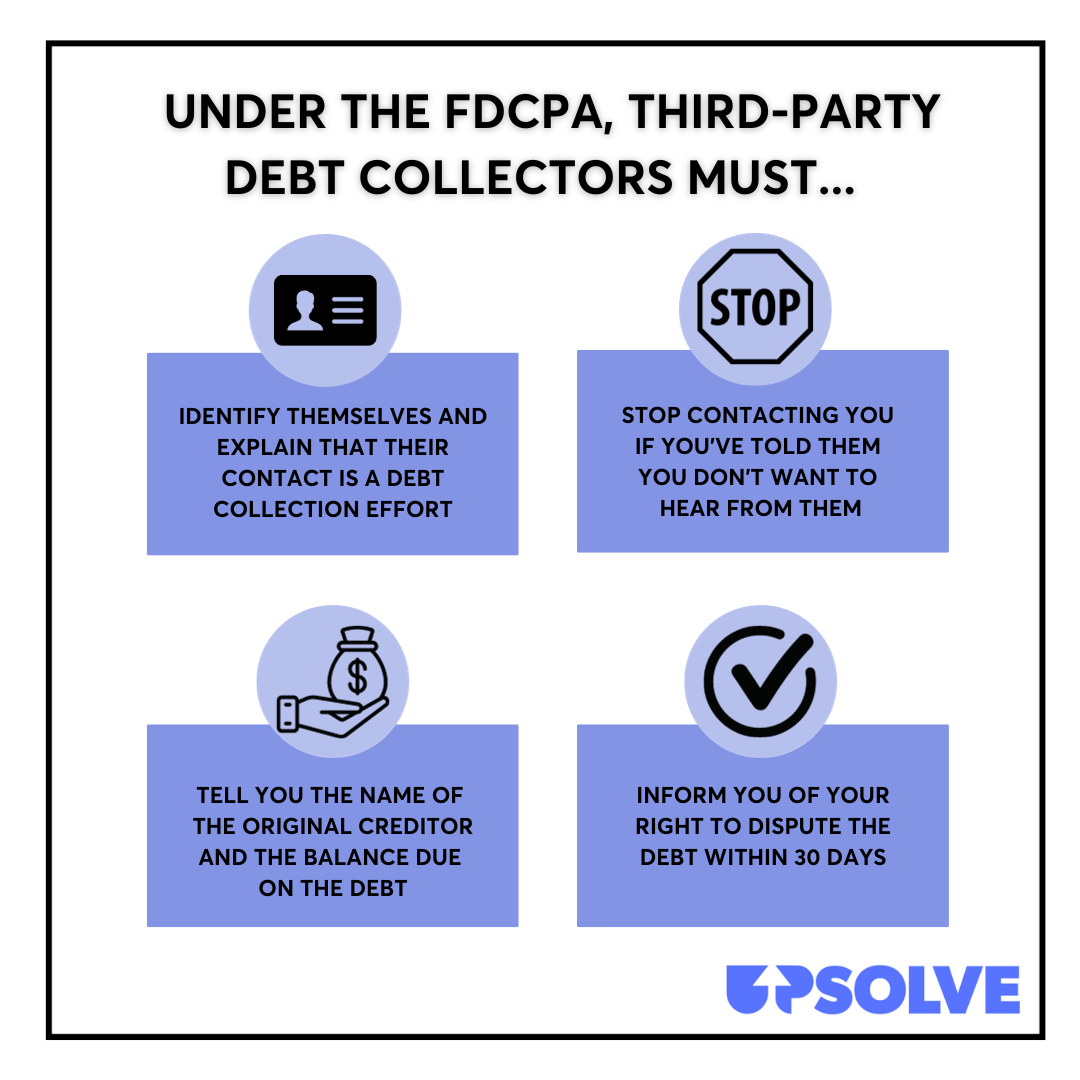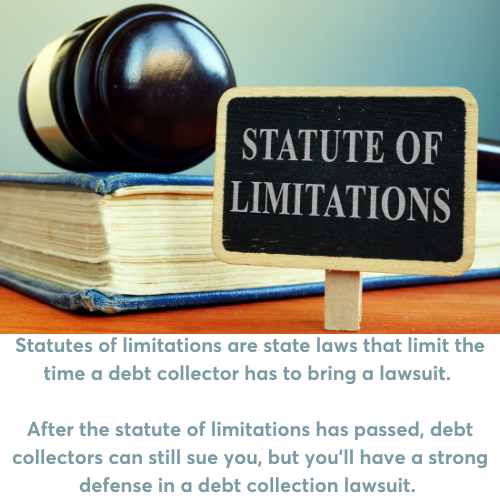Your Guide to South Carolina’s Debt Collection Laws
Upsolve is a nonprofit that helps you eliminate your debt with our free bankruptcy filing tool. Think TurboTax for bankruptcy. You could be debt-free in as little as 4 months. Featured in Forbes 4x and funded by institutions like Harvard University — so we’ll never ask you for a credit card. See if you qualify
South Carolinians are protected by the state’s Consumer Protection Code, whose rules apply to both original creditors and third-party debt collection agencies. The CPC prohibits debt collectors from harassing you, deceiving you, or engaging in unfair practices when trying to collect on a debt from you. It also gives consumers the right to sue anyone who violates this law for damages or an injunction to stop or reverse the collection activity. The statute of limitations for credit card debt is three years in South Carolina.
Written by Attorney Tina Tran. Legally reviewed by Jonathan Petts
Updated May 22, 2025
Table of Contents
- What Are the Debt Collection Laws in South Carolina?
- What Can You Do if a Debt Collector Breaks the Law in South Carolina?
- What Is the Statute of Limitations for Debt Collection in South Carolina?
- What Can Debt Collectors Do To Collect Debt in South Carolina?
- Need Help With Debt Relief? Here Are Some Options
What Are the Debt Collection Laws in South Carolina?
The South Carolina Consumer Protection Code outlines the major consumer protections for individuals facing debt collection activity in the state. South Carolinians are also protected by the federal Fair Debt Collection Practices Act (FDCPA).
How Does South Carolina’s Consumer Protection Code Protect You?
The Consumer Protection Code (CPC) provides important safeguards for people in South Carolina. The CPC prohibits debt collectors and creditors from engaging in certain behavior, including:
Threatening criminal prosecution
Using or threatening force or violence
Repeatedly calling you or calling at odd hours
Calling you at your workplace if you’ve asked them not to
Discussing your debt with an unauthorized third party
Using obscene or profane language
Misrepresenting any aspect of your debt, including how much you owe
Pretending to be a government employee or attorney if they aren’t
The CPC also gives consumers the right to sue anyone who has engaged in unfair, deceptive, or harassing practices while collecting a debt. A lawsuit can result in a court injunction to stop the debt collector and/or damages to compensate you for any losses you’ve incurred.
The CPC goes above and beyond the federal Fair Debt Collection Practices Act, which only applies to third-party debt collectors. The CPC applies to anyone trying to collect a debt, which includes original creditors as well as debt collection agencies.
How Does the Fair Debt Collection Practices Act (FDCPA) Protect You?
The FDCPA is an important federal law. In many ways, it mirrors the protections of the CPC. But the FDCPA deviates in one important way: It only applies to third-party debt collectors, not to original creditors.
Here’s a quick overview of the FDCPA:

Under the FDCPA, debt collectors are prohibited from the following:

The FDCPA also sets out certain requirements for third-party debt collectors, including the following:

What Can You Do if a Debt Collector Breaks the Law in South Carolina?
If a creditor or debt collector violates South Carolina law, you should start by filing a complaint. Then, you may choose to sue the debt collector as well.
First and foremost, you must file a complaint with the South Carolina Department of Consumer Affairs. If you want to file a lawsuit, you can’t do so until you have reported the issue to the department and given them at least 30 days to investigate your complaint.
Then, if you want to continue, you can sue the debt collector or creditor. If you can show the court that the debt collector engaged in unconscionable conduct, you can recover actual damages, attorney fees, and a monetary penalty ranging from $100 to $1,000 [as outlined in Sections 37-5-108(2) and 37-5-108(6)].
Additionally, under South Carolina’s Unfair Trade Practices Act, you may be able to recover even more if the court finds that the creditor's violation was willful or knowing. This means that if the creditor knew or should have known they were committing a violation, you may be entitled to up to triple the amount of your actual damages, plus attorney’s fees and costs, and any other relief the court deems appropriate (Section 39-5-140).
What Is the Statute of Limitations for Debt Collection in South Carolina?

The most common types of consumer debts are credit card debt and medical debt. In South Carolina, the statute of limitation for these two types of debt is three years. That means that after three years, the creditor or debt collector isn’t supposed to sue you to collect the debt. (In some cases, they still will sue you, but raising the statute of limitations is a strong defense.)
Here’s how the statute of limitations breaks down for other debt types in South Carolina:
| Debt Type | Statute of Limitations |
|---|---|
| Open Accounts (including credit cards) | 3 years |
| Open Accounts (including credit cards) | 3 years |
| Promissory Notes | 3 years |
| Contract of Sale | 6 years |
| Mortgage | 20 years |
If you’re contacted about an older debt you suspect or know is near or past the statute of limitations, be very careful about what you say (or do) to the debt collector. If you admit to owing the debt or make a payment on it — even a very small payment — you may accidentally restart the statute of limitations. To learn more, read What To Do if You’re Contacted About Old Debt.
What Can Debt Collectors Do To Collect Debt in South Carolina?
Though South Carolina has more stringent regulations regarding debt collection than many other states, there is still plenty a debt collector or creditor can do to try to collect a debt they believe you owe.
Collection efforts usually start with phone calls and written notices. If you’re more than 30 days in default on a car loan, they may escalate their efforts by repossessing your car. If these efforts don’t work, the debt collector may eventually decide to sue you.
Taking you to court is a strategy debt collectors use to close the case once and for all and to get access to more aggressive collection measures like wage garnishment. Taking money from your paycheck via wage garnishment is the #1 tool debt collectors will use if they win the court case against you. They must get a court order to do it, though, and state laws limit how much they can take each paycheck.
If you aren’t working or don’t get a paycheck, they may try to levy your bank account instead or get a property lien.
If you get sued, it's important to respond to the lawsuit to avoid losing by default. You can respond on your own or with the help of a trusted organization like SoloSuit. SoloSuit has helped over 280,000 people respond to debt lawsuits and settle debts for less. They hace a 100% money-back guarantee.
Need Help With Debt Relief? Here Are Some Options
In the U.S., consumer debt like credit card debt and medical debt is common. Unfortunately, so is the practice of debt collection. This is why there are state and federal laws in place to protect individuals from being harassed in the debt collection process. If you find yourself dealing with debt collectors regularly and aren’t sure how to get out of debt, it may be time to seek some support.
You can start by scheduling a free session with a nonprofit credit counselor. These counselors are budgeting professionals who also know about popular debt relief options. They can look at your budget, debt, and financial goals and tell you about your options to get things back on track. Many credit counseling services are free. Some, such as a debt management plan, may come with a fee, but the costs tend to be low.
If you’re seriously struggling with debt and can’t see a way out, consider filing bankruptcy to get a financial fresh start. If you see a credit counselor, they can tell you more about the pros and cons of this choice. If you decide Chapter 7 is right for you, you can use Upsolve’s free filing tool to file your case without an attorney. Upsolve has helped over 300,000 people discharge over $700 million in debt… all for free.
